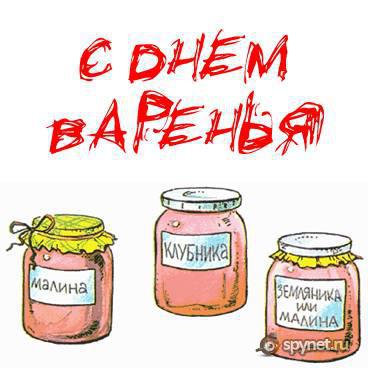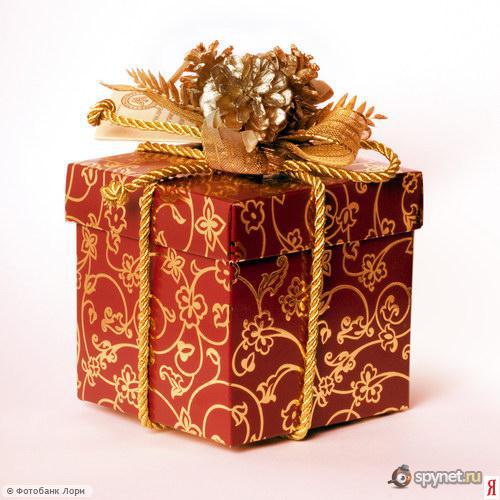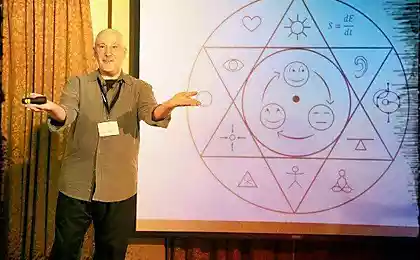1630
When invented to celebrate your birthday?

For a long time no one to celebrate the birthday had not occurred.
There are different hypotheses about where tradition has gone to celebrate birthdays. On one of them, it all started with the cult of Mithras - ancient Iranian god of the sun, which was brought to Europe the soldiers of the Roman Empire. Some traditions of Mithraism and pagan rituals (such as Saturnalia) - cultic meal, custom make each other gifts - were the first prototypes denrozhdennyh festivities.
According to another version, birthday even older. In wild tribes there was a belief that the day of birth of a person makes a particularly vulnerable to evil spirits, and tribesmen surrounds and protects it with his wishes, and then offerings. Prototypes birthday may have been days when the whole family headed by a leader and shaman came to worship their idols.
Celebrate the birthday began in ancient Egypt, later this custom spread to Assyria. But it only concerns people outstanding - the pharaohs and kings, as well as their male heirs. The first written evidence of the celebration of the birthday of the Egyptian pharaohs are about to 3000 BC Staged in the palace banquet, which was attended in addition to the nobles and servants and slaves. Often birthday Pharaoh released from prison inmates.
For a long time the birthdays of women not only noticed, but did not even recorded. As far as we know, the first woman honored with an annual celebration was Cleopatra II, Queen of Egypt (185-116gg. BC).
The ancient Greeks celebrated the birthdays of their gods, 12 times a year (for example, the birthday of Artemis, goddess of the moon and of hunting, celebrated the sixth day of each month). As for mere mortals, such a privilege enjoyed only the head of the family - a husband and father, and then only once a year. Women and children do not pay attention. But neither then nor later, during the Middle Ages, birthdays, people hardly noticed. In the bulk of humanity does not use the calendar. And the life of every individual meant nothing.
With the spread of Christianity, the tradition of celebrating someone's birthday disappeared. The early Christians viewed the world as a place of mourning and felt that happy event - not the birth and care of a person, his deliverance from the sinful world. In addition, the traditions inherited from the Gentiles - the Egyptians, Greeks and Romans, were not encouraged church.

It was only during the Reformation the opportunity to arrange a holiday, regardless of the days dedicated to any saint, suddenly seemed very attractive. Initially solemn birthdays were the privilege of kings. Then the ceremony allowed the children - the first country to start celebrating children's birthdays, became Germany.
Gradually softened position of the church, and to the XII century parish priests brought the book of registration of birth and baptism. Then in the family and began to celebrate birthdays, not only adult men, but also women and children.
In the XIII century by German peasants formed the ritual of child birth. Child woke at dawn songs and brought his cake with candles. But the cake is eaten, but gradually burns in him replaced with new candles until the evening, when the family gathered for dinner. Birthday blow out the candles and make a wish. To wish come true, I had to keep it secret, and blow out all the candles with one breath. Following the ceremony, the cake was divided between the gathering. Candles on it was as much as the hero of the occasion years plus one candle, symbolizing the moment of birth. As for Christmas or New Year everyone brings gifts Santa Claus or Father Christmas, as birthday gifts bring a special "denrozhdenny dwarf." This figure remained in German folklore until the early twentieth century.
Well, now sing Happy Birthday in many languages and in many countries.

In Russia began to celebrate birthday party only in the XVII century. On the eve of baked cakes and loaf and sang a song about him. Royal birthdays were particularly pomp and loaves were distributed to the people. It is well known: a birthday party Elizabeth had spent so much money that they could build a palace with three luxurious furnishings. Name day of the imperial family and the church hierarchs called his Name. But birthdays holidays in Russia began only in the XIX century - and then the nobles and wealthy merchants.
Neither the Orthodox nor the Catholic tradition to celebrate the birthday was not accepted. Catholics celebrate the birthdays of saints only, Orthodox - only three of Birth: Christmas Christ, the Virgin Mary and John the Baptist.
But Protestants believe otherwise - and celebrated birthdays mere mortals.
In Russia after the revolution were not celebrated name day. And even the "Fly-Tsokotukha" Korney Chukovskiy in the 20s prohibited, including for the promotion of the fact that "Today Fly Tsokotukha birthday girl ...».

************************************************** *****************
Traditionally birthday is ...
... Tyaganie the ears or other physical effects on the hero of the occasion - an ancient custom to fool evil spirits. Fetched tear here and in Italy, earlobe - in Brazil. In English-speaking countries take the birthday of the hands and feet and throw up a number of years, plus one time for happiness. In Israel, on the chair lift. Sometimes newborn hit on the arm, Spain click on the forehead, and in Ukraine in the old days of the child taken out in the field and flogged in boundaries, at the same time to know exactly where the boundary held. In Canada, the tip of the nose birthday smeared with oil to the failure could not catch his slippery nose, and in Nepal paint mark on the forehead;
... Cake with candles being made in a dark room. This tradition comes from the ancient times, too, and lighting of cake or pie refers to the lighting of the altar in honor of the pagan gods. Sometimes these cakes baked for good luck coins and rings, some places continue to do so until now.
In many countries, birthday prepared a special meal. For example, in Asia it is noodles - a long life to be long.
Cake making, and all the guests sing songs in honor of the birthday. Two hundred years ago in Russia sang about a loaf, in Poland and is still willing to "Sto Liat" (like a church "Many fly"), and in many countries they sing Happy Birthday. This song was composed sisters Hill teacher from Kentucky in 1893 to welcome the children in the classroom. At first it sounded like "Good morning to you." But who put the tune of words about the birthday, history is silent. According to the Guinness Book of Records, is the most popular song in the world;
... And then blow out the candles on the cake zagadyvaya desire.

Interesting facts:
Especially in many countries considered anniversaries - 10, 30, 50 years. Often specifically say 1 year, 18 and '21.
Gold or champagne birthday is the day that coincides with the number of years birthday, for example, the 15-year anniversary, celebrate the 15th day of.
In some countries, certain birthdays are part of the ritual. So Jewish boys in the 13 years mark a bar mitzvah, and girls 12 - Bat Mitzvah. In Latin America kvintsenera - Holiday 15-year-old girl on the day of their birth. On this day, the daughter of the compulsory dance a waltz with her father. Sometimes kvintseneru she first puts on high heel shoes. In the US, some of the girls celebrate the sweet sixteenth birthday (sweet sixteen).
Birthday Russian Santa Claus - 18 November. So decided in the Great Ustyug, where he settled Santa last year. It was planned that this will become a new tradition, opening the New Year celebration.
Different traditions of African peoples like: reaching a certain age, children are initiated - the test after which become full members of the tribe.
Since the times of the year on the continent is not too different from each other and, in general, is still "on the damn island has no calendar," Africans are celebrating birthdays rare. For example, in the tribe of Gaul - time in 8 years. And in the tribe Kukui and did time in 13. The birthday that day planting a fig tree.
In Denmark and other Scandinavian countries in the post flag birthday.
In Latin America, the ceiling during mark the birthday (and other holidays too) hung specially made of papier-mache or straw figure in the form of an animal or some object - Peanut - filling it with sweets. The child must blindfolded pierce Peanut stick to wake up sweet rain.
It is believed that the birthday of all racehorses in the Southern Hemisphere - August 1, in the North - January 1.
Birthday of the Earth - World Earth Day - celebrated on April 22. This date is entered in the calendar since 1971 on the initiative of the United Nations.

In some countries, members of the royal family have official birthday, which is a holiday for the country and at the same time does not coincide with the present day appearance of the royals to light. For example, such birthdays have Dutch and English monarchs. English Elizabeth II, born April 21, celebrates his birthday on the second Saturday of June. In England, this tradition has gone from the time of Edward VII, who was born in the late autumn, but he wanted to organize celebrations on such a momentous occasion in good weather and large crowds.
Until now, the tradition of celebrating birthdays in the West intersects with another: name day celebration in honor of the patron saint, who gave his name to the child. For example, Jehovah's Witnesses do not recognize birthdays, believing their pagan festivals along with Christmas and Easter.
In American schools sometimes marks the half birthday - what a half years, - if, for example, this accounts for the holidays, especially Christmas.
In probability theory, there is the so-called paradox of birthdays. It sounds like this: in any group of more than 22 people with a probability greater than 50% for two or more people birthdays coincide. In the group where 55 people, the probability of 99%, and if people typed 68, already 99, 9%.

In some Native American tribes, except the date of birth, date of the first sitting note and a first step.
Arabs do not celebrate birthdays, but celebrated their prophet, although this is not prohibited. Perhaps, date of birth do not celebrate because children in the family is usually too much.
Birthdays in Holland in 5, 10, 15, 20 and 21 Year is called the crown. In these dates are especially significant birthday receives gifts, and his place in the house is decorated with flowers, balloons and paper tape.
It is known that in East Asian countries (such as China, Japan, Korea, Vietnam) count of human life are different - from the moment of conception. The kid gets older for one year with the advent of each new year - all birthdays are celebrated on the same day. However, on a par with the count is and western, and many Japanese and Koreans consider age as we are.
In England, all those who lived to be 80, 90 and 100 years, receive a personal greeting from the queen.
But no matter what, after all, the most miserable Birthdays live in Japan, as there are generally celebrate birthday is not accepted. There congratulate the child's parents for what they have done a kind deed - gave birth to a child. Who are the children can still boast that the holiday in honor of them all the same suit, so it -treh, -Five semigodovalye and kids for whom satisfied "City-Go-San." However, this holiday is the same for all children and may not coincide with a personal happy birthday child. Gifts also in Japan, oddly enough, decided to give only when a person turns 60, 70, 79, 88, 99 years
Each of us knows how old he is and months. But how many days you have lived in the world? Somewhere in the world there is a very interesting tradition: a decimal celebrate his birthday - anniversaries of past days, "tysyachedneviya».
The first such birthday celebrated in 1000 days. But the biggest reason - 10000, 20000- and 30000-dnev (if you're lucky).
In school we go about 2,500 days.
Adolescence accounts for 5000 -7000 th days.
At the age of about 28 years, you can celebrate the 10,000 days since the beginning of life.
Fortieth anniversary coincides approximately with the 14600-dnev.
Human life in Russia lasts an average of 23,750 days (65 years - from
which every fourth leap - 3 months and 16 days).

Medical astrology.
Back in the 50s Austrian physician Stuhr noticed that most of the patients with cancer, was born in certain months. After analyzing three thousand histories, he led the regularity: less than all cancers arose in those born from May to August.
Since then, research on finding links between month of birth and disease have taken a lot.
Scientists from the Institute for Demographic Research (Rostock, Germany), analyzed the date of birth of more than one million people who died in Austria, Denmark and the United States from 1968 to 1998, came to the conclusion to the very old age live those born in the autumn. Australian data confirm this - centenarians continent are born from April to June, that is just the Australian autumn.
The work of scientists at Bristol and Edinburgh universities provide evidence that women born in the winter, often there is a high cholesterol level (sample did in 4286 examples), pulmonary disease and predisposition to cardiovascular disease. And the colder times of the year, in which a man is born, the greater the likelihood that he will suffer from diseases of the heart and blood vessels (approximately 24%).
But ... Recent research 6752 Norwegian schoolchildren aged 14-15 say that the most successful study children born in January, February and March. And those who are born at the end of the year, not only learn less, but still have problems with communication. And even born in the winter often grow geniuses.
With this bet would be an American physicist Mac Jervie, which examined the relationship the birth 17,000 scientists and 6,000 politicians with their professional status, came to the conclusion that everything is accidental.
A survey of 50,000 recruits, undertaken by scientists at Vienna University, showed that those born in the spring, more timid and shy, but taller than all the others. A left-hander from them, in Austria, as it turned out, most are born from September to February.

According to the British, schizophrenia in Europe and the United States more likely to develop those born in the spring. It is possible that the reason lies in the deficiency of vitamin D in the early stages of fetal development.
And the time of birth influences the attitude towards life. British psychologists, interviewing 4,000 people, brought: those born in the summer, more optimistic and have higher self-esteem. There is an assumption that children are more likely to indulge in summer joys of life because parents are busy with the newborn is in the warmer months.
And it is quite the opposite, but also English, study. Among a hundred women, committed suicide after 55 years, the vast majority were born in the summer, and those of them who was born in August, killed himself with cruelty.
How to explain all this? Banal weather conditions. During pregnancy and the first months of life a person is exposed to many natural factors. Food, sunlight, infections, hormonal activity - all this is due to the time of year and can have an impact on our destiny. But ...
As you can see, data scientists often contradict each other. From what we can conclude that the unconditional correlation between time of birth and health (mind, temperament, etc.) does not happen.
Because there is no optimal and months for the birth. And if you still want advice, here it is: some doctors recommend to conceive a child in January and February, so most of the pregnancy comes at a time of fruits and vegetables, and acquired immunity from mother kept him from infection in the first, the coldest six months. Or plan conceived in September-October, when you are at the peak of his health after the summer holidays and nutrition.

Beware birthday!
Proven physiologists birthday - a lot of stress for everyone. It was established that on the eve of the children compromised immune system, increases the level of anxiety, there are health problems. A number of adults after surgery complications made before or immediately after the birth, increased to 32% compared with 12% of ordinary days.
And even contrive repairs to make serious decisions to marry or for a month before and after the birth is not recommended.
In this month were born ...
January
Vladimir Vysotsky, AP Czechs, Mel Gibson, Nicolas Cage, David Bowie, Elvis Presley, AA Milne, Federico Fellini, Wolfgang Amadeus Mozart, Lewis Carroll, Joan of Arc, Sir Isaac Newton.
February
Vyacheslav Tikhonov, Ronald Reagan, Charles Darwin, Galileo Galilei, John Travolta, Elizabeth Taylor, Boris Yeltsin, Lyubov Orlova, Georges Simenon, Nicolaus Copernicus.
March
Mikhail Gorbachev, Liza Minnelli, Albert Einstein, Antonio Vivaldi, Harry Houdini, Elton John, Quentin Tarantino, Leonid Cliffs, Vincent Van Gogh, Maxim Gorky, Yuri Gagarin.
April
AS























